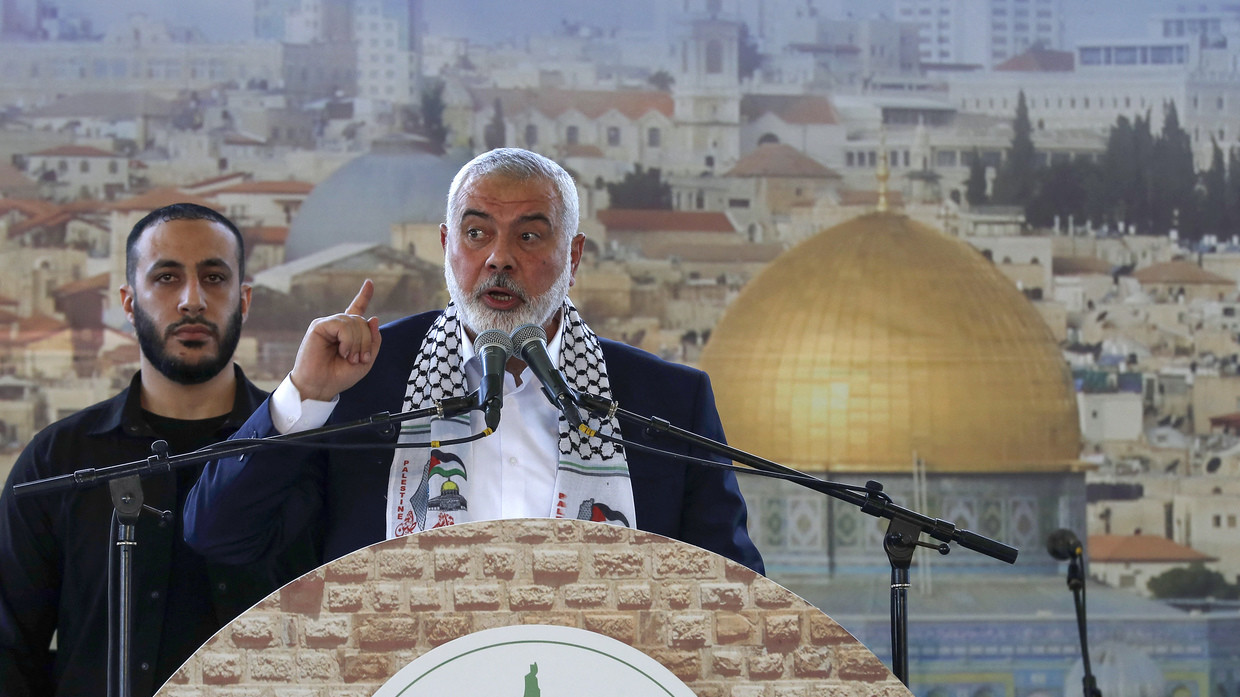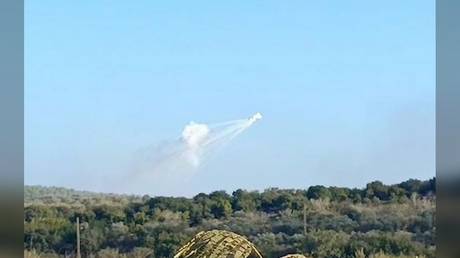The head of the Hamas political bureau, Ismail Haniyeh, has said the militant group is open to negotiations to end the war with Israel, but stressed that any final deal would have to lead to an independent Palestinian state.
In a televised speech on Wednesday, Haniyeh said Hamas is prepared for dialogue with Israel, hoping that future talks could put “the Palestinian house in order both in the West Bank and the Gaza Strip.”
“We are open to discuss any arrangement or initiative that could end the aggression” and lead to a “political path that secures the right of the Palestinian people to their independent state with Jerusalem as its capital.”
However, the official went on to warn that any attempt to exclude Hamas and other armed groups from a post-war settlement would be a “delusion,” saying the “resistance factions” must be involved in the process.
Haniyeh’s comments came just one day after Israeli Prime Minister Benjamin Netanyahu suggested that a Palestinian state was out of the question, vowing to never “repeat the mistake of Oslo,” a 1993 peace deal which created a roadmap for a sovereign Palestinian nation.
While Israel previously accepted the idea in principle, the process established by the Oslo Accords has long since broken down, all but freezing the decades-long conflict. More than 30 years later, Israeli troops continue to occupy the West Bank, where Jewish settlement outposts have rapidly grown in recent years, while the government maintains a tight blockade over the Gaza Strip.
On Wednesday, Netanyahu declared that Israel would continue its military operation in Gaza “until Hamas is annihilated,” adding that even in the face of international pressure, “nothing will stop us.”
While an earlier vote calling for a ceasefire failed in the United Nations Security Council thanks to a US veto, despite strong support among other members, the UN General Assembly later passed a similar measure with an overwhelming majority in favor. The non-binding resolution demanded an immediate end to the fighting, the unconditional release of all hostages and the provision of humanitarian aid for Gaza.
The United States, which remains Israel’s top military donor, has voiced support for brief “pauses” to the fighting, but continues to oppose a more lengthy truce, arguing it would only help Hamas. However, President Joe Biden has grown increasingly critical of Israel’s approach to the war, recently warning the country could lose international support if it continued its “indiscriminate” bombing campaign.
Israel began its assault on Gaza following a surprise attack by Hamas on October 7, which claimed the lives of some 1,200 Israelis and saw more than 240 people taken hostage. In retaliation, the Israel Defense Forces has pounded the Palestinian enclave with heavy airstrikes and launched a major ground invasion, killing more than 18,600 people so far, according to local officials.


